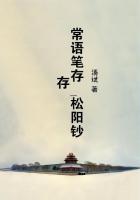Let us, therefore, remove all such passages, and take each book by itself; and I repeat that I believe the writer in whatever he himself relates of his own authority, and of its origin. But I cannot find any such claim, as the doctrine in question supposes, made by these writers, explicitly or by implication. On the contrary, they refer to other documents, and in all points express themselves as sober-minded and veracious writers under ordinary circumstances are known to do. But perhaps they bear testimony, the successor to his predecessor? Or some one of the number has left it on record, that by special inspiration HE was commanded to declare the plenary inspiration of all the rest? The passages which can without violence be appealed to as substantiating the latter position are so few, and these so incidental--the conclusion drawn from them involving likewise so obviously a petitio principii, namely, the supernatural dictation, word by word, of the book in which the question is found (for, until this is established, the utmost that such a text can prove is the current belief of the writer's age and country concerning the character of the books then called the Scriptures)--that it cannot but seem strange, and assuredly is against all analogy of Gospel revelation, that such a doctrine--which, if true, must be an article of faith, and a most important, yea, essential article of faith--should be left thus faintly, thus obscurely, and, if I may so say, OBITANEOUSLY, declared and enjoined. The time of the formation and closing of the Canon unknown;--the selectors and compilers unknown, or recorded by known fabulists;--and (more perplexing still) the belief of the Jewish Church--the belief, I mean, common to the Jews of Palestine and their more cultivated brethren in Alexandria (no reprehension of which is to be found in the New Testament)--concerning the nature and import of the [Greek text which cannot be reproduced] attributed to the precious remains of their Temple Library;--these circumstances are such, especially the last, as in effect to evacuate the tenet, of which I am speaking, of the only meaning in which it practically means anything at all tangible, steadfast, or obligatory. In infallibility there are no degrees.
The power of the High and Holy One is one and the same, whether the sphere which it fills be larger or smaller;--the area traversed by a comet, or the oracle of the house, the holy place beneath the wings of the cherubim;--the Pentateuch of the Legislator, who drew near to the thick darkness where God was, and who spake in the cloud whence the thunderings and lightnings came, and whom God answered by a voice; or but a letter of thirteen verses from the affectionate ELDER TO THE ELECT LADY AND HER CHILDREN, WHOM HE LOVED IN THE TRUTH. But at no period was this the judgment of the Jewish Church respecting all the canonical books. To Moses alone--to Moses in the recording no less than in the receiving of the Law--and to all and every part of the five books called the Books of Moses, the Jewish doctors of the generation before, and coeval with, the apostles, assigned that unmodified and absolute theopneusty which our divines, in words at least, attribute to the Canon collectively. In fact it was from the Jewish Rabbis--who, in opposition to the Christian scheme, contended for a perfection in the revelation by Moses, which neither required nor endured any addition, and who strained their fancies in expressing the transcendency of the books of Moses, in aid of their opinion--that the founders of the doctrine borrowed their notions and phrases respecting the Bible throughout. Remove the metaphorical drapery from the doctrine of the Cabbalists, and it will be found to contain the only intelligible and consistent idea of that plenary inspiration, which later divines extend to all the canonical books; as thus:- "The Pentateuch is but ONE WORD, even the Word of God; and the letters and articulate sounds, by which this Word is communicated to our human apprehensions, are likewise divinely communicated."
Now, for 'Pentateuch' substitute 'Old and New Testament,' and then I say that this is the doctrine which I reject as superstitious and unscriptural. And yet as long as the conceptions of the revealing Word and the inspiring Spirit are identified and confounded, I assert that whatever says less than this, says little more than nothing.
For how can absolute infallibility be blended with fallibility?
Where is the infallible criterion? How can infallible truth be infallibly conveyed in defective and fallible expressions? The Jewish teachers confined this miraculous character to the Pentateuch.
Between the Mosaic and the Prophetic inspiration they asserted such a difference as amounts to a diversity; and between both the one and the other, and the remaining books comprised under the tithe of Hagiographa, the interval was still wider, and the inferiority in kind, and not only in degree, was unequivocally expressed. If we take into account the habit, universal with the Hebrew doctors, of referring all excellent or extraordinary things to the great First Cause, without mention of the proximate and instrumental causes--a striking illustration of which may be obtained by comparing the narratives of the same event in the Psalms and in the historical books; and if we further reflect that the distinction of the providential and the miraculous did not enter into their forms of thinking--at all events not into their mode of conveying their thoughts--the language of the Jews respecting the Hagiographa will be found to differ little, if at all, from that of religious persons among ourselves, when speaking of an author abounding in gifts, stirred up by the Holy Spirit, writing under the influence of special grace, and the like.
But it forms no part of my present purpose to discuss the point historically, or to speculate on the formation of either Canon.













